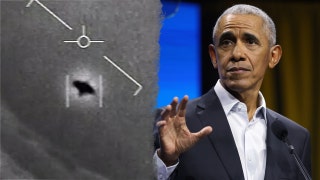Fox News Flash top headlines for July 5
Fox News Flash top headlines are here. Check out what's clicking on Foxnews.com.
A Washington Post columnist predicted that it will "harder" for the United States to celebrate the upcoming 250th celebration of America’s independence.
On Friday, two days before the Fourth of July, the Washington Post published an opinion piece titled "Remember the Bicentennial? Celebrating might be even harder for America’s 250th birthday." Written by Jennifer Finney Boylan, who is the Anna Quindlen Writer in Residence at Barnard College of Columbia University, the article explored how the U.S. plans to celebrate the milestone when deep divisions exist within the country
Boylan appeared less enthusiastic about the country’s prospects as it approaches the 250th anniversary of its independence in 2026. She described the inevitable celebration as tasked with "keeping a new generation of Americans from rolling their eyes, or worse."
"As we prepare to celebrate America at 250, it may be less clear than ever what it is we are celebrating," wrote Boylan. "Compared with Americans in 1976, pre-semiquincentennial Americans seem to no longer quite agree about who they are, or ought to be."
In 2016, The United States Semiquincentennial Commission was established by President Barack Obama to properly observe the 250th anniversary. The act was later amended in 2020 to allow the commission to accept congressional funding and make more technical changes and membership requirements.
Boylan spoke with members of the commission including Dan DiLella, the chair of the Semiquincentennial Commission, and Keri Potts, vice president of communications at America250. They revealed that their goal for America250 will be an "inclusive" celebration of the nation’s independence.
"This is going to be the most inclusive commemoration in American history," Potts said. "For us, that means staying grounded in 1776, but remembering that there is history before and after 1776 that needs to be told."
DEMOCRAT CORI BUSH SLAMS FOURTH OF JULY, CLAIMS ‘BLACK PEOPLE STILL AREN’T FREE
According to Boylan, this meant a dedication to diversity including a focus on slavery, Native Americans, and women’s rights. Actions were already underway to highlight these topics through an interactive art installation at a D.C. gallery featuring the face of Civil War surgeon Mary Edwards Walker, a plan to emphasize the city of Charleston, South Carolina which was formerly a center for slave trade, and a mandate to engage with tribal reservations.
"History is what it is," DiLella said. "And I think it has to be told."
Although even Boylan acknowledged that such an interpretation of history is divisive, DiLella and Potts remained optimistic. Potts insisted "But if we can take the next five years to inspire, to imagine, to involve, then when we get to 2026, Americans will be more connected to each other, and to what it means to be an American. And that is our north star."
CLICK HERE TO GET THE FOX NEWS APP
As for Boylan, she remained pessimistic, especially as she recalled her own memories of witnessing the bicentennial of 1976.
"I’m not positive, but I’m pretty sure I rolled my eyes."









































